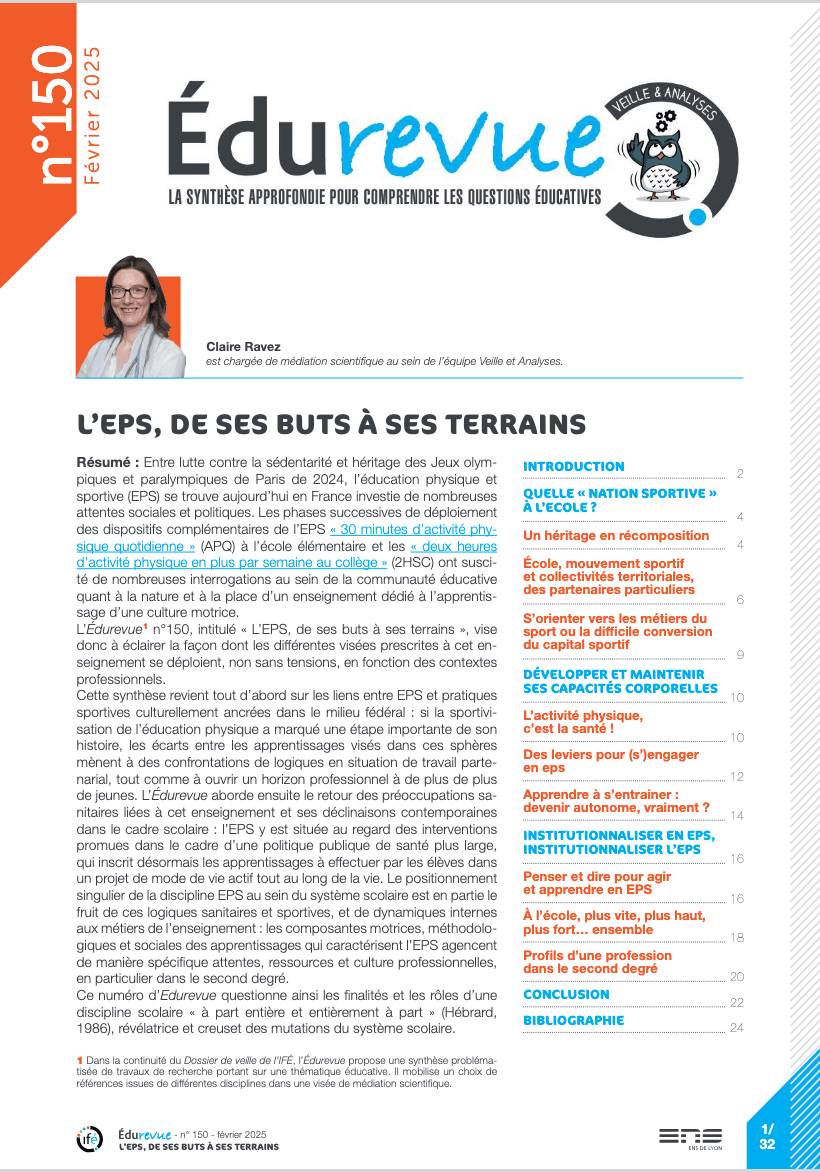
Education au patrimoine : mémoire, histoire et culture commune
n°72, mars 2012
Auteur(s) : Musset, Marie
Le dossier n°72 du mois de mars 2012 édité par le service Veille et Analyse de l'Ifé et rédigé par Marie Musset est consacré à l'éducation au patrimoine. N’épousant pas forcément les contours des disciplines scolaires, l’éducation au patrimoine les concerne toutes en s’intéressant aux connaissances « sur » les contenus patrimoniaux, mais aussi à l’éducation « par » le patrimoine, tenant compte la visée d’une part (culture commune, dimension interculturelle qui permet une ouverture à l’autre et non repli identitaire) et de méthode d’autre part : c’est le rôle de la pédagogie de l’éducation au patrimoine.
Télécharger l'article intégral d'Édurevue (version PDF)
Résumé
Abstract
One of the effects of the European Heritage Days is to have popularized the term ‘heritage’, giving it a new and very specific meaning: as symbols of national history, historical monuments are now considered to be secondary to the ‘common good’, in which citizens are able to recognize themselves and to share common values.
‘Heritage education’ has rapidly become a priority objective at a national, European and global level. In France, as a cross- and multidisciplinary field, ‘heritage education’ has been incorporated into educational programs and curricula (from nursery school to upper secondary level), in association with a range of partners (including associations). The new discipline appears to have encountered little resistance, as shown by the significant amount of resources and initiatives developed to support students in forming a common heritage.
Rather than following traditional disciplinary boundaries, ‘heritage education’ encompasses all subjects, focusing on knowledge ‘of’ heritage, but also on education ‘through’ heritage. The assumption is that by promoting shared emotional and artistic experiences, ‘heritage education’ can foster or reveal a community of values.
However, the dynamic triangular relationship between heritage, history and memory is a complex one, and most of our heritage bears the marks of past conflicts – conflicts that are part of our history but that need to be revisited in order to understand the present. Therefore, we need to have both the courage and the patience to recognize the potential for dissent and disagreement, and for negotiation and consensus, in the construction of heritage. Only then will we be able to use our heritage as an instrument of citizenship education.
It is important to emphasize that change needs to be seen in terms of both objective (i.e. a common culture and an intercultural dimension promoting openness to others, as opposed to cultural isolationism) and method – such is the role of the pedagogy of heritage education.











